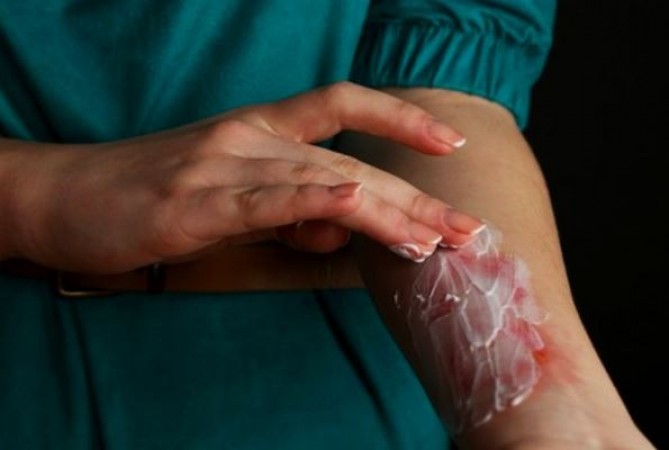
Minor burns and skin-related issues are common occurrences in our daily lives. Whether it's from accidentally touching a hot surface or getting a minor cut while performing chores, these incidents often prompt us to seek immediate relief and remedy. In such situations, home remedies are frequently the first course of action. One such remedy that has garnered both praise and skepticism is the application of toothpaste on minor burns. This article aims to delve deeper into the practice of using toothpaste for burns, examining the reasons behind its popularity, the potential risks associated with it, and alternative treatments recommended by experts.
Why do people apply toothpaste after getting burned?
The immediate application of toothpaste following a burn is often recommended due to its perceived cooling effect on the skin. When a burn occurs, the skin undergoes damage, leading to inflammation and pain. Toothpaste, particularly varieties containing menthol or mint, can provide a temporary sensation of cooling, which may help alleviate the discomfort associated with burns. Additionally, toothpaste is easily accessible and readily available in most households, making it a convenient option for addressing minor burns.
However, it's essential to understand that while toothpaste may offer temporary relief from burning sensations, its efficacy in promoting healing or preventing further damage to the skin is questionable. Furthermore, the ingredients found in toothpaste, such as sodium fluoride and abrasive particles, raise concerns about potential adverse effects on the skin when applied to burns.
The potential risks associated with using toothpaste on burns:
One of the primary concerns surrounding the use of toothpaste for burns is the presence of sodium fluoride. Sodium fluoride is a common ingredient in toothpaste and is known for its anti-cavity properties. However, when applied to damaged skin, sodium fluoride can cause irritation and exacerbate inflammation, leading to further discomfort and potential complications in the healing process.
Moreover, toothpaste often contains abrasive particles that are intended for cleaning teeth but can be harsh on delicate skin. These abrasive particles may aggravate the already compromised skin barrier, leading to increased pain and the risk of infection. Additionally, certain additives and flavorings present in toothpaste formulations may not be suitable for application on burns and could cause allergic reactions or chemical burns in some individuals.
It's important to note that the skin's response to burns can vary depending on factors such as the severity of the burn, the individual's skin sensitivity, and any pre-existing medical conditions. Therefore, what works for one person may not necessarily be suitable for another. In the case of minor burns, opting for gentler and safer alternatives to toothpaste is advisable to avoid potential complications and promote optimal healing.
Expert recommendations and alternative treatments:
Medical professionals and burn specialists generally advise against using toothpaste as a remedy for minor burns. Instead, they recommend applying an anti-inflammatory cream or ointment to the affected area. Anti-inflammatory creams contain ingredients such as corticosteroids or aloe vera, which help reduce inflammation, soothe the skin, and promote healing.
When treating minor burns at home, it's crucial to follow proper first aid protocols to minimize the risk of infection and facilitate optimal healing. Immediately after sustaining a burn, the affected area should be cooled with lukewarm water to dissipate heat and alleviate pain. Avoid using ice or ice-cold water, as extreme temperatures can further damage the skin. After cooling the burn, gently pat the skin dry and apply a thin layer of anti-inflammatory cream or ointment.
In addition to topical treatments, maintaining proper wound hygiene is essential for preventing infection and supporting the healing process. Keep the burn clean and dry, and avoid picking at any blisters that may form. If the burn is severe or covers a large area of the body, seek medical attention promptly to receive appropriate care and treatment.
While the practice of using toothpaste for minor burns may offer temporary relief, it carries potential risks and may not be the most effective or safe treatment option. The presence of ingredients like sodium fluoride and abrasive particles in toothpaste raises concerns about skin irritation and complications in the healing process. Instead, experts recommend opting for anti-inflammatory creams or ointments to soothe the skin, reduce inflammation, and promote optimal healing. By following proper first aid protocols and seeking medical attention when necessary, individuals can effectively manage minor burns and minimize the risk of complications.
Celebrating National Frozen Yogurt Day: A Healthier Alternative to Ice Cream
Wash your shoes without any tension in winter, this small dryer will dry them instantly
Belly Fat Be Gone: Know the Power of Lemon and Cumin Water to Reduce Belly